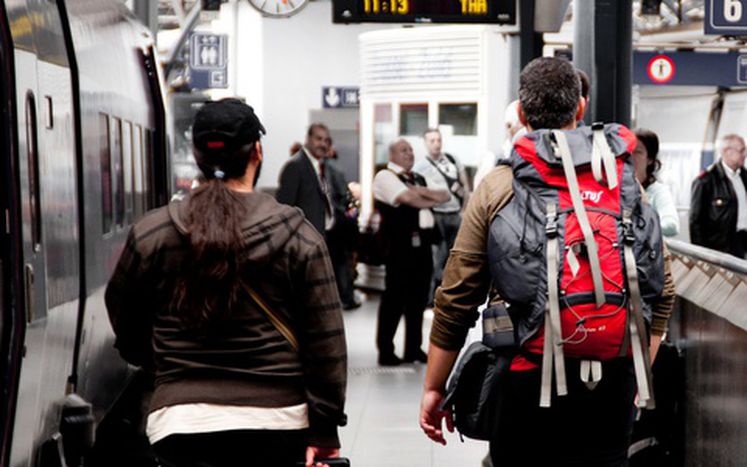
Until When Are You Staying?
Published on
Translation by:
 Matthew Lye
Matthew Lye
The economic crisis and high unemployment rate that shook Spanish society has pushed thousands of young people to cross over the borders to try to make their way into Europe. Brussels, the Belgian capital, home to hundreds of them, many of whom survive on precarious, poorly paid jobs and without social security, for those who are well-prepared.
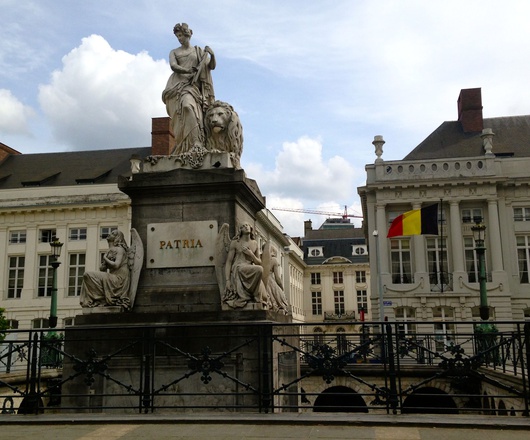 How long will you be staying for? This is one of the phrases young people who come to Belgium hear most, in search of what they believe is the El Dorado of work. So say Laura and Esther, friends, but they share much more than the good times and the bad: both are young Spanish emigrants that one day, tired of not finding opportunities in their homeland, rushed into the adventure. They explain that the arrival of immigrants from Southern countries has increased the crisis. And they notice the growing rejection, by much of society: "they always ask you 'When are you going? When are you staying until?".
How long will you be staying for? This is one of the phrases young people who come to Belgium hear most, in search of what they believe is the El Dorado of work. So say Laura and Esther, friends, but they share much more than the good times and the bad: both are young Spanish emigrants that one day, tired of not finding opportunities in their homeland, rushed into the adventure. They explain that the arrival of immigrants from Southern countries has increased the crisis. And they notice the growing rejection, by much of society: "they always ask you 'When are you going? When are you staying until?".
Laura is working, but is part of the underground economy: "I work in a restaurant with a contract for 30 hours, when in reality I do 60, and take home half the salary in an envelope." And apparently, the black market is quite common. "I know many others in my situation," she confesses. High taxes and the abundancy of newcomer labour from Southern Europe makes the perfect breeding ground for many employers to take advantage, circumventing the Treasury and provide precarious contracts. It is very difficult to quantify the problem, but estimates suggest some 300,000 people affected.
Esther's case is different. She is a nurse, has been in Belgium for a year and a half and has a good job. "The conditions are better than in Spain, not only because of the salary," she explains; but the beginning, she remembers, was hard. "When you come here you have three months to find a job, if not they send you a letter telling you that you are going to be evicted," she says. That includes, she emphasises, the police being able to come to your home. In her case, this situation did not occur because she found work just before the deadline, although "the Council Administration told me they were going to send the police." Last year, 323 Spanish residents received the eviction. Not exactly a deportation, strictly speaking, it is rather a kind of 'administrative death'. The basic principle of the European Union (EU) on the free movement of goods, capital and labour remains the least questioned in relation to persons seeking employment.
These are just two of thousands of cases across the EU. In fact, the languages which are heard the most in the Belgian streets, after French and Flemish, are Italian, Greek, Portuguese and Castilian Spanish.
WHAT IS HAPPENING?
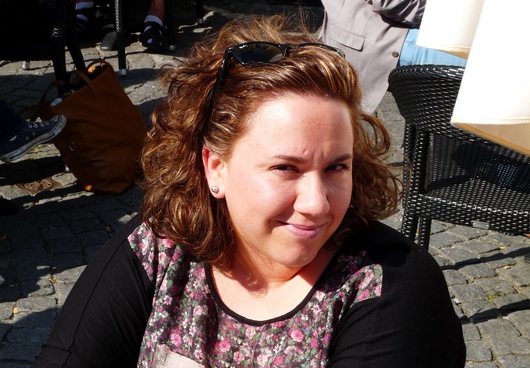 There is no need to repeat the data. Immigration has become a regular occurrance in 'old Europe', maximized by the economic crisis. The countries most affected by it, Greece, Portugal, Italy or Spain, which have youth unemployment rates hovering around 50%, lose human capital heading north. Some talk of a lost generation. It is estimated that about 8 million migrant workers in the EU, according to information from Pablo Simón, professor at the Free University of Brussels (ULB). Many of these 8 million are exploited and illegal immigrants. Young people have always been the most adventurous when it comes to emigrating but Carlos Vargas, a researcher at the University of Oxford, stressed to cafebabel.com that "the crisis has deepened" and that means that they accept jobs for which they are over-qualified. In many cases, waiving their rights. Meanwhile, the Banco de España's Mario Izquierdo, told the magazine that there is a direct relationship between the crisis and emigration, but clarifies that not only young Spaniards go, but "also immigrants from other countries who had come to Spain".
There is no need to repeat the data. Immigration has become a regular occurrance in 'old Europe', maximized by the economic crisis. The countries most affected by it, Greece, Portugal, Italy or Spain, which have youth unemployment rates hovering around 50%, lose human capital heading north. Some talk of a lost generation. It is estimated that about 8 million migrant workers in the EU, according to information from Pablo Simón, professor at the Free University of Brussels (ULB). Many of these 8 million are exploited and illegal immigrants. Young people have always been the most adventurous when it comes to emigrating but Carlos Vargas, a researcher at the University of Oxford, stressed to cafebabel.com that "the crisis has deepened" and that means that they accept jobs for which they are over-qualified. In many cases, waiving their rights. Meanwhile, the Banco de España's Mario Izquierdo, told the magazine that there is a direct relationship between the crisis and emigration, but clarifies that not only young Spaniards go, but "also immigrants from other countries who had come to Spain".
Solutions
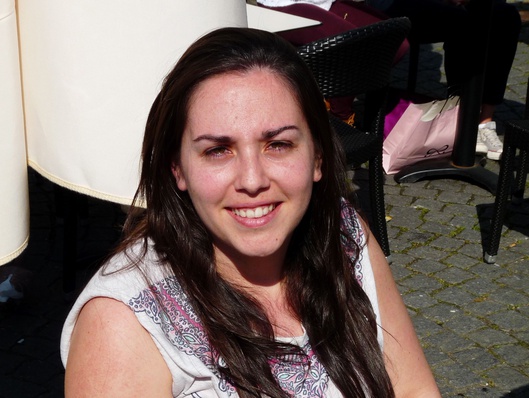 Many young people report that they feel lost and are demanding for more information. INTEGRABEL tries to give advice. "We are a meeting point, a place to make contacts," said its general secretary, Luis Molina. She states that there are many cases of Spanish immigrants "almost forced to leave due to the level of unemployment" that despite having a good education and being adept in several languages, are faced with a very competitive landscape. "I call it jokingly the Hollywood of Europe, because many people come here and there is a lot of competition," he says. So some are forced into the black market. To these people, Luis would say, "do not accept it or get out of there," even though, he admits the needs that youth people experience are more than understandable.
Many young people report that they feel lost and are demanding for more information. INTEGRABEL tries to give advice. "We are a meeting point, a place to make contacts," said its general secretary, Luis Molina. She states that there are many cases of Spanish immigrants "almost forced to leave due to the level of unemployment" that despite having a good education and being adept in several languages, are faced with a very competitive landscape. "I call it jokingly the Hollywood of Europe, because many people come here and there is a lot of competition," he says. So some are forced into the black market. To these people, Luis would say, "do not accept it or get out of there," even though, he admits the needs that youth people experience are more than understandable.
Juan López, Secretary of Institutional Relations of the Spanish Socialist Workers' Party (PSOE) in Europe, recognises the problem. He believes that we must act in four areas: more information, in and outside of Spain; adopt a common immigration policy in Europe, standardise university and professional degrees and extend the periods of residence in other countries from 3 to 6 months during periods of acute crisis.
For his part, Pablo Simón, demonstrates the lack of information. He considers it a priority to put pressure on the institutions to ensure force for coordinated action to end this situation. Just before the European elections which, incidentally, coincide with the Belgian federal and regional ones, he sees an opportunity because "in this election period we can make noise to try to attack the problem."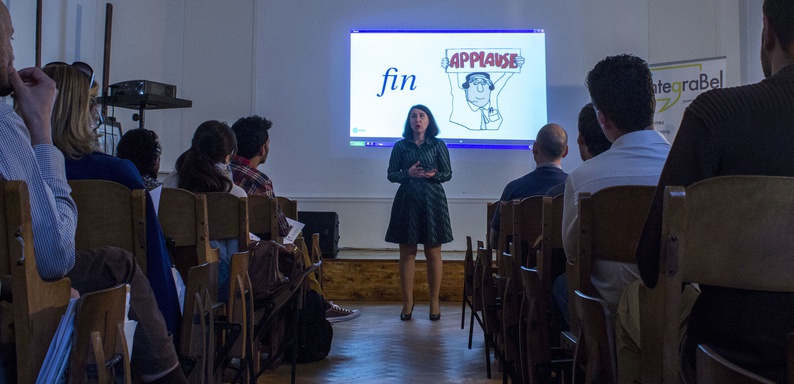
Like many young people, the 15-M movement also came from Spain. Its members in Belgium do not believe that immigrants are the problem, but the attitude of the Belgian and European authorities. Because of this they are appalled by the possibility of 'administratively killing' citizens, eliminating their basic rights. So, they decided as an Assembly to lodge a formal complaint with the EU against the expulsion of EU citizens by Belgium. "We want them to be aware of the problem," proclaims Sara Lafuente, a member of the group, hoping that things will change. "Hope is the last thing to go," she says.
Changes in the complex reality of Europe are difficult and slow. Europe is an entity of gigantic proportions that moves slowly. It seems necessary to establish a more cohesive and effective and clear immigration policy among the 28 member states of the EU community. Meanwhile, time passes, and in Brussels and in many other places, you will still hear the Spanish accent among the voices of emigration. That of Laura, a chef in a fancy restaurant; that of Esther, a geriatric nurse or Manuel, a musician seeking employment while dreaming of emulating his idols and who does not lose his smile while sharing a delicious Belgian beer to the rhythm of a blues tune, in one of those bars which still has an old jukebox.
THIS ARTICLE IS PART OF THE SPECIAL EDITION DEDICATED TO BRUSSELS, "EU-topia: Time To Vote", a project of Cafébabel in colLAboration with the Hippocrène foundation, THE EUROPEAN COMMISSION, THE MINISTRY OF FOREIGN AFFAIRS AND the EVENS foundation.


Translated from ¿Hasta cuándo te quedas?


